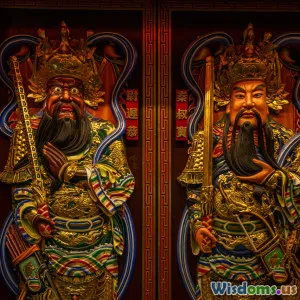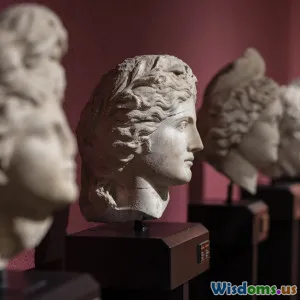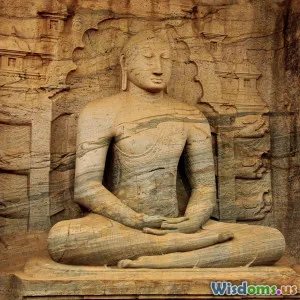
Understanding Mythological Themes
6 min read Explore the rich tapestry of mythological themes that shape our understanding of culture, morality, and human experience. (0 Reviews)
Understanding Mythological Themes
Mythology is a treasure trove of narratives that not only entertain but also provide deep insights into human nature, culture, and morality. From ancient civilizations to modern storytelling, mythological themes resonate across time and geography. This article will explore some of the most significant themes found in various mythologies, their meanings, and their impact on contemporary life.
The Nature of Heroism
One of the most prevalent themes in mythology is heroism. Heroes are often depicted as individuals who embark on a journey to achieve greatness, overcome obstacles, and protect their communities.
Examples of Heroism
- Hercules: In Greek mythology, Hercules represents the archetypal hero who undertakes the Twelve Labors, showcasing bravery, strength, and resilience.
- King Arthur: The legends of King Arthur emphasize chivalry and moral integrity, showcasing the hero's duty to serve and protect his kingdom.
These stories illustrate the qualities that societies value in leaders and role models, offering a framework for understanding what it means to be a hero.
The Cycle of Life and Death
Another important theme in mythology is the cycle of life, death, and rebirth. This theme reflects the natural order of existence and the human struggle with mortality.
Cultural Perspectives
- Egyptian Mythology: The story of Osiris, who is killed and resurrected, underscores the belief in an afterlife and the cyclical nature of life.
- Hinduism: The concept of Samsara illustrates the cycle of birth, death, and rebirth, emphasizing the importance of living a righteous life to achieve liberation.
These narratives remind us of our mortality while offering hope and meaning through the notion of rebirth.
The Quest for Knowledge
Many myths also explore the theme of knowledge and the pursuit of wisdom. Characters often embark on quests not just for physical treasures but for enlightenment.
Notable Examples
- Prometheus: In Greek mythology, Prometheus steals fire from the gods to give to humanity, symbolizing the quest for knowledge and the consequences it can entail.
- The Oracle of Delphi: This oracle represented the pursuit of wisdom in ancient Greece, where individuals sought knowledge about their future and the divine.
These stories highlight the dual nature of knowledge: it can empower, but it also comes with responsibility.
Good vs. Evil
The battle between good and evil is a fundamental theme in many mythologies, illustrating moral lessons and the consequences of one's actions.
Illustrative Myths
- The Epic of Gilgamesh: This ancient Mesopotamian tale contrasts the hero's growth in wisdom against the backdrop of his initial arrogance and tyranny.
- The Mahabharata: This Indian epic presents the moral complexities of war, duty, and righteousness, showcasing the gray areas between good and evil.
These narratives serve as cautionary tales, urging individuals to consider their choices and the broader implications of good and evil.
Transformation and Identity
Transformation is another essential theme that resonates throughout mythology. Characters often undergo significant changes, reflecting our understanding of identity and personal growth.
Examples of Transformation
- Metamorphoses by Ovid: This work is filled with stories of characters who physically or spiritually transform, symbolizing change and adaptation.
- Celtic Mythology: Tales of shape-shifting beings challenge our perceptions of identity and the fluidity of existence.
These stories encourage readers to embrace change and recognize the potential for growth in their own lives.
Conclusion
Understanding mythological themes offers us valuable insights into our own lives and societies. Through the lens of heroism, the cycle of life and death, the pursuit of knowledge, the struggle between good and evil, and the journey of transformation, we can find reflection and meaning in our experiences. These timeless narratives continue to shape our cultural landscapes, reminding us of the stories that connect us all as human beings. As we explore these themes, we uncover not only the essence of ancient wisdom but also the truths that resonate in our modern world.
Rate the Post
User Reviews
Popular Posts





















